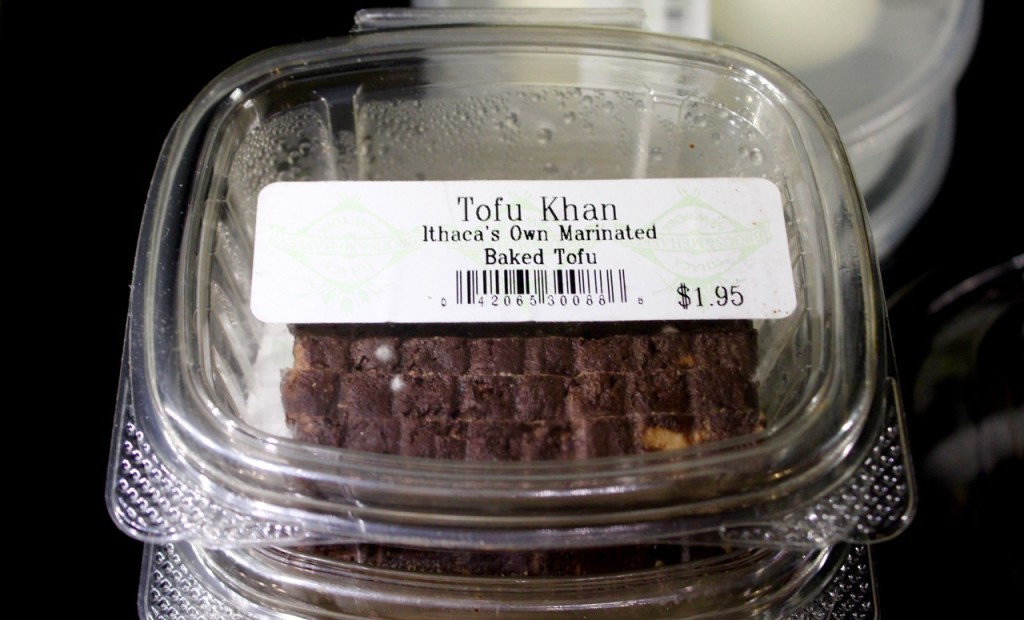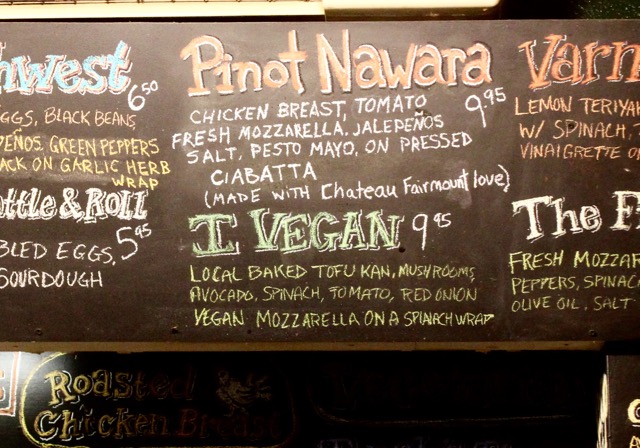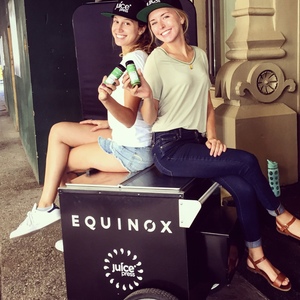For the record, I am not at all a vegetarian. Although I thoroughly enjoy a juicy hamburger from time to time, this does not stop me from exploring the uncharted depths of vegetarian cuisine. I have tried all sorts of alternative protein sources ranging from your typical fare of tempeh and tofu to more exotic ones like paneer and seitan. In fact, I have tried most of these in the short time that I have been here at Cornell. This may not come as a surprise to you, as I am sure you have seen them in eateries around campus and the surrounding city of Ithaca.
If you have not noticed, our little city can be considered a “vegetarian mecca” of sorts. Ithaca is chock full of herbivorous cuisine, from delicious meatless options to entire restaurants dedicated to serving up sustainable vegetarian dishes. Despite all of these great options, there is one product that helps to define Ithaca as the land of the veggie-lovers. Ithaca Tofu-Khan is a favorite amongst the vegetarian community here. For all of you, vegetarian or not, here are 3 things you need to know about this iconic locally made product.

Photo by Abby Galyon
1. Could it get more local? Ithaca Tofu-Khan is grown, processed, and sold within the city limits of Ithaca.
The production of this entirely local product begins in the fields of Potenza Organic Farm located in Trumansburg, NY (just a stone throw away from the city of Ithaca). It is here where the soybeans used to make the tofu are grown and cultivated. Once these protein packed beans are harvested, they are transported to Ithaca Soy, the home base for production.
Ithaca Soy has been in existence for about 25 years, falling through the hands of multiple owners until it was taken over by Thom Trause, the company’s sole owner. The “tofu factory” known as Ithaca Soy is located on the north side of town, over by the iconic Farmer’s Market and Purity Ice Cream (click here to see it on a map). Here the soybeans are processed and packaged into vacuum-sealed 6 oz. bricks and transported to locations all over the Finger Lakes region. You can find this product at Wegmans, GreenStar, and various small-scale grocers around Ithaca. It is generally priced at $1.79-2.99 for a 6oz. brick and keeps for about a month (it also freezes very well).
2. Ithaca Tofu-Kan is made entirely from organic non-GMO soybeans.
The soybeans used for the tofu are grown by Tony Potenza, the owner of Potenza Organic Farm in Trumansberg, NY. Potenza began his career in 1974 by selling carrots and eventually branched his production to include other fresh vegetables. He eventually shifted his production to focus more on growing beans and grains, much more forgiving and less weather/time sensitive produce. Since then, he has been selling his organic non-GMO soybeans to Ithaca Soy and other tofu producers for about 30 years. He is also working closely with Cornell in order to find better varieties of soybeans to grow on his farm.
3. Alright what is this “Tofu Khan” and how is it made?
The production of Tofu-Khan begins as soon as the soybeans are harvested from the farm. These beans are ground up and placed in a large kettle where they are steamed and pressed, leaving behind a pulpy substance. A coagulant, or curdling agent, is then added to give the tofu its signature cheese-like texture. Once the curds form they are pressed into one of three consistencies, soft, firm, and extra firm (the amount of pressing and liquid left over determines the tofu’s firmness). This process is typical for all tofu, but the thing that makes Ithaca Tofu-Khan special is the additional steps it undergoes. After it is pressed and cut into 6 oz. bricks, the tofu is marinated in a tangy combination of soy sauce, barely malt, and spices and then baked in an oven for 5-6 hours. This additional processing is what gives Tofu Khan its crisp outer coating and tangy, smoky and baked flavors.
For more information on this process, check out this photo gallery featured in the Ithaca Journal.
So, what exactly am I supposed to do with it?
The possibilities here are endless. Take advantage of the asian flavors of the marinade and add the tofu to your weeknight stir-fry. While the flavor of the tofu is dominated by a combination of soy sauce and spices, you shouldn’t be afraid to use it in non-asian dishes. This tofu tastes great cubed on salads or sliced on a sandwich. If you are really feeling bold, you could appreciate it for what it is and just eat it plain (I do recommend that you warm it up beforehand).
If you’re not up for experimenting in the kitchen you’re in luck! You don’t have to travel far to find this iconic product in eateries around town, you just have to know where to look. Below is a list of eateries and specific dishes featuring Ithaca Tofu-Khan:

Photo by Abby Galyon
Collegetown Bagels: Tofu-Khan Deli Sandwich $6.50 & I Vegan Panini $9.95
Moosewood Restaurant: All tofu & tofu-khan supplied by Ithaca Soy
Temple of Zeus (right in the Art’s Quad!): The Zeus Special BLTease $6.45
Photo by Abby Galyon


